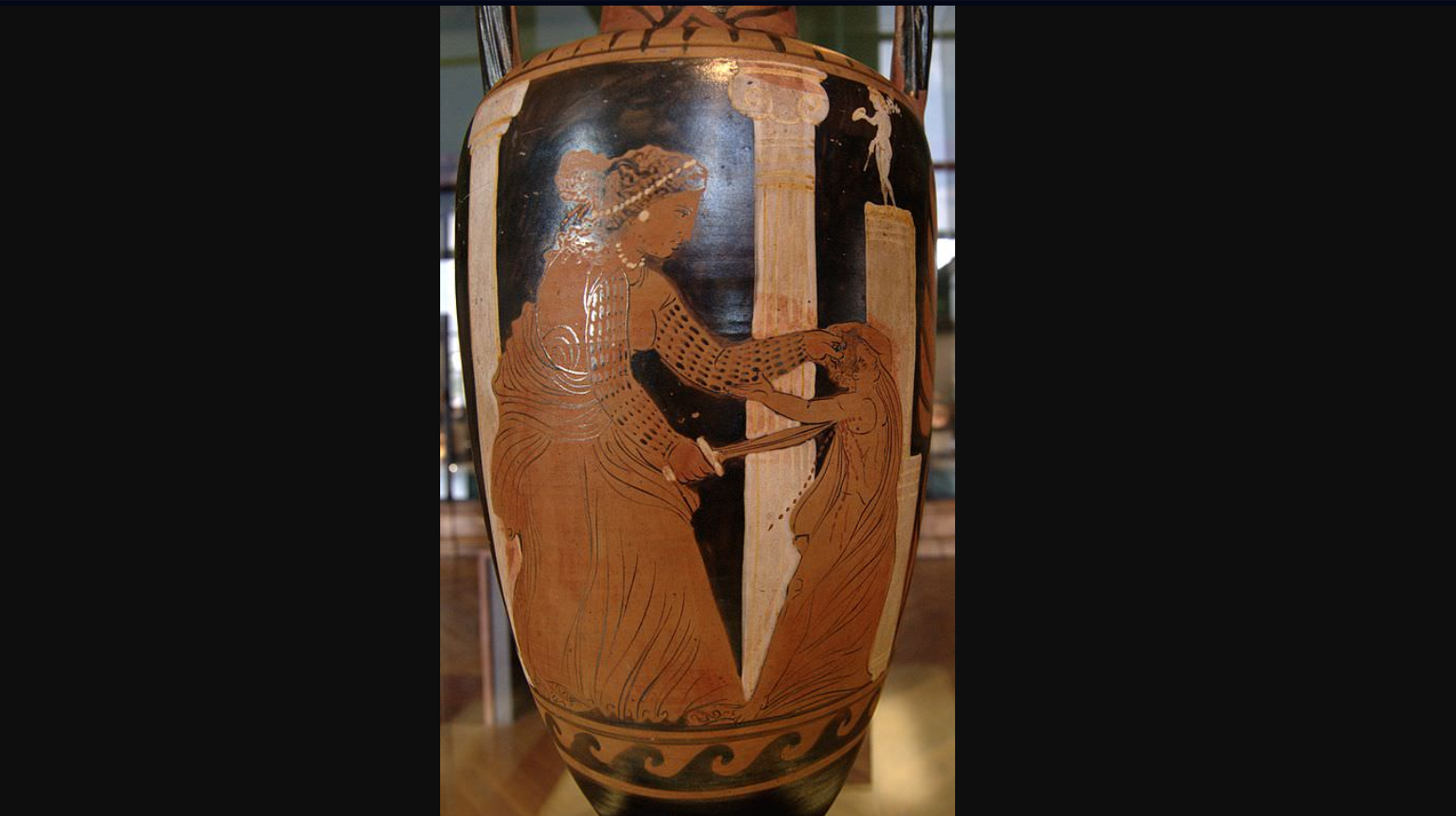"If you find a good wife, you will be happy. "If not, you will become a philosopher," said Socrates, the famous philosopher, and according to the testimony of his contemporaries, this conclusion came from his personal experience.
Socrates' wife, Xanthippe, was a woman who did not leave a good impression, but today we can examine the relationship of this strange couple with a clear view. Was it Xanthippe's explosive character that led Socrates to philosophy, or did Socrates' devotion to philosophy determine his wife's character?
Who was Xanthippe
Unlike her husband, who was simply the son of a stonemason and a midwife, we have reason to believe that Xanthippe came from an aristocratic family in Athens. We have two important facts to support this hypothesis:
First, her name is the feminine form of the word meaning "blond horse," and names with content related to horses were given by those who had the financial comfort to pursue the expensive hobby of horseback riding to their children.
Secondly, the eldest son of the couple did not take the name of his paternal grandfather, as was (and still is) the custom in Greece. He was called Lambrocles (= shining glory), which is also an aristocratic name and may have been the name of Xanthippe's father. The name of Socrates' father (Sofroniskos) was given to the second son, which would be really strange if Xanthippe was not of the aristocratic origin or at least of a higher class than Socrates.
Lambrocles appears in a text by Xenophon in which he complains about his mother, saying that she was so annoying that no one could stand her. Plato depicts her at a very difficult moment when she visits Socrates in prison just before he is executed.
As soon as Socrates' friends arrived, Xanthippe, holding one of her sons in her arms, began to cry out and lament, "Socrates, for the last time now your friends will greet you". Socrates asked someone to take her home, and she burst into tears, lashing out and screaming as they pulled her away from him. But were those who called her annoying and hysterical right, or was her bad reputation unjustified?
Because if we want to be fair, we must keep in mind that exaggeration in mourning was not a quirk of Xanthippe. The women of ancient Greece grieved desperately and sought to share their grief with the loved one who was dying or had died.
The author Lukianos mentions that the relatives and friends of the deceased were in such a bad state that people felt more pity for the living than for the dead: they wept with tears, pulled their hair, beat their heads and chests. They tore their cheeks with their fingernails... As for the lamentations of Lambrocles, who was a teenager, they are not so different from the lamentations of any teenager from then to now.
Xanthippe was a young aristocrat at the time, who for some reason married a poor, genius philosopher whom she probably didn't choose since women at the time didn't decide their fate. The way she mourned her husband shows that she loved him, but it is certain that her marriage was not fairytale-like.
Socrates as husband and father
Poor Socrates did not marry until he was very old. We know that he had his first son at the age of 55, so we can assume that he was at least thirty years older than his wife since girls in ancient Athens were married at a young age.
Aside from being poor, Socrates was also very ugly. He had a flattened nose, thick lips and rolled eyes. His contemporaries used to say that he looked like a Satyr. And this poor and ugly man had some strange habits.
He cared nothing for the needs of the body. He was resistant to hunger, thirst, cold and alcohol. He wore the same tunic winter-summer, he danced alone in his house and sometimes he stood motionless in the middle of the street to meditate without communicating with the surroundings.
This even happened to him in camp, on a very hot summer day, on the eve of an important battle, where his fellow soldiers saw him standing still for twenty-four hours!
This strange man had only one goal in life: to help his countrymen discover the truths they had repressed in the depths of their souls. He believed that evil is born of ignorance and that if he would help his interlocutor to gain the necessary knowledge, then he would realize that it was not in his interest to be evil.
"No one is evil with his will," he asserted, as he fought ignorance. This noble activity should perhaps fill his partner with pride. And the "problem" with Socrates was that, unlike the other teachers of his day, he took no payment from his students.
The activity to which he had devoted every minute of his life brought him no financial benefit. This was definitely a problem for Xanthippe and a source of family strife.
However, Socrates was not indifferent to his wife or children. When Lambrocles complained to him about his mother's disgrace, Socrates took the time to admonish him.
After describing at length the efforts his mother had made to educate him, he concluded, "Vowing to give you goods, do you say she is intolerable? "
A mismatched-matched couple
If Xanthippe was an ordinary girl of her time, if she was interested in nothing but the welfare of her children and the material provision of her household, then her father made a poor choice of husband for his daughter.
On the other hand, if she was truly unhappy with him, Athenian law did not prevent her from divorcing him. But neither she nor Socrates did, so we can assume that this relationship worked in some way.
His friends always wondered why he, this level-headed and gentle man, would choose such an authoritarian wife. In fact, one of them, Antisthenes, asked him directly: "How do you live with this woman whose worst woman has never been, is not, and will not be?" And Socrates answered him:
"Because I have made it my life's work to meet people like Xanthippe, knowing that if I can suffer for her, I shall certainly suffer for all other men."










